Riley was in good hands last week while we were in the Carolinas for a research-vacation. My family is from Columbia, South Carolina. I was born in Charlotte, North Carolina in 1952 and lived there until 1966 when my father was transferred to Southern California.
I’m attempting to write a novel about the lives of my mother and grandmother but, as a clueless kid, I wasn’t aware of much of what was going on in the world around me, outside my family bubble.
For example, I didn’t realize my schools were segregated. I didn’t know there were marches, boycotts, and lunch counter sit ins in Charlotte and Columbia when I lived there. I didn’t understand that I could sit anywhere on a public bus or that “white only” public water fountains meant others went thirsty.
This trip was an attempt to begin to reeducate myself. And eat some Carolina BBQ.
We succeeded on the BBQ front, but some of our other plans were thwarted.
The PGA tournament we planned to attend at Quail Hollow was rained out on Monday. We got soaked when we finally went on Tuesday. When we were told to evacuate due to thunderstorms and go back to the bus, my husband was struck by lightning. It was terrifying. His arm is still sore.
The wonderful Levine New Museum of the South in Charlotte shut its doors the week before we arrived.
The Charlotte Main Library, which houses a rich collection of history archives, is closed until 2026 for reconstruction.
The Fairfield County History Museum in Winnsboro, South Carolina had an “out to lunch” sign on the door and never returned my repeated phone calls.
We persisted.
At a Columbia Fireflies baseball game, Beth, my second cousin once removed (if I have that terminology correct) suggested we stop by the Richland Library where my Aunt Brooks (Beth’s grandma) volunteered for years.
Libraries across the country, including in my hometown of Huntington Beach, California are currently under attack by book banners. South Carolina has the unfortunate distinction of leading the nation in the number of banned schoolbooks.
There was still much to admire at the Richmond Main. We found a beautiful floor of children’s books with a mural of Maurice Sendak’s Where the Wild Things Are. The library also runs a generous “book club” package that includes 15 copies, conveniently packaged in a heavy-duty Richland Library tote bag that are available for 8 weeks, allowing ample time for everyone to finish the book and discuss.
And there is the incredible Walker Local and Family History Center which contains material spanning the Civil War to the Civil Rights eras, focusing on Columbia, Richland County and the surrounding counties in South Carolina. When we walked in and saw a wall sized photograph taken by my great uncle Charles Old, I knew I was in the right place.
There is a wealth of information in this center. We had a long conversation with the librarian Amy who explained that (luckily for me!) much of this material has been digitized and is free to access to the general public.
I can’t wait to dive into this rabbit hole. I’d also love to make a return trip and peruse all of their maps, high school yearbooks, photographs, and oral histories in person.
We also drove down to Orangeburg, South Carolina to visit photographer Cecil Williams and view his incredible photographs on view at the South Carolina Civil Rights Museum. Mr. Williams and his camera were everywhere in South Carolina during the Civil Rights Movement and his museum reeducated me.
For example, I never knew that:
South Carolina’s Harry Briggs originated the lawsuit that ended school segregation. Although the Brown vs. the Board of Education, Topeka, Kansas is more recognized, the Briggs case became the template for the Supreme Court decision argued by Thurgood Marshall.
The 1960’s lunch counter protests, marches, and boycotts in Orangeburg inspired similar actions across the country.
In 1955, Sara Mae Fleming was arrested for sitting in the front seat of a bus in Orangeburg, South Carolina, seventeen months before Rosa Parks.
The first instance of police killing student protestors at an American University was in Orangeburg, South Carolina on February 8, 1968, two years and three months before the shooting at Kent State.
More to share in future newsletters.
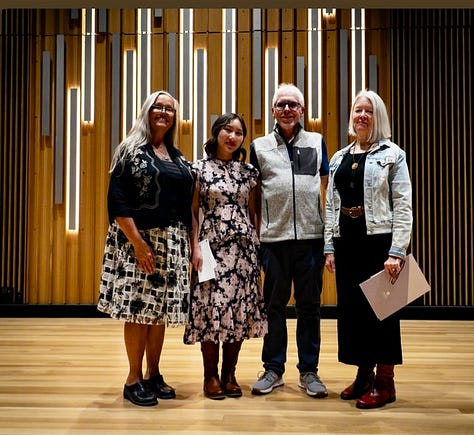
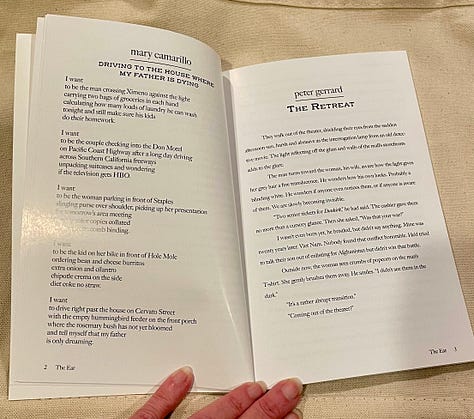
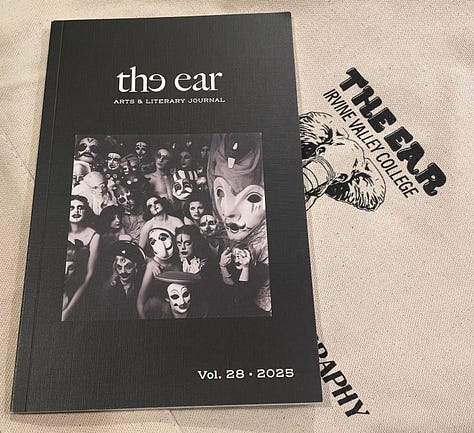
In other news, it was unbelievable at the recent Ear launch party, to be named a Linda Purdy Memorial Prize winner, along with my dear friend Peter Gerard, and Xuan Tran.
My poem was about my father, and he would be thrilled to know that the award came with a generous check, even though my poem didn’t rhyme, which he thought was what poetry was supposed to do.


Linda Purdy was a poet, fiction writer, and artist. Her work zeroes in on tiny details that help illuminate life’s deeper meanings. The Linda Purdy Memorial Prize aims to “promote the work of members of the Orange County community whose poetry or prose resonates with Linda’s own and helps keep our focus on the weird and wonderful in our lives.”
I’m so happy to be included among the weird and wonderful. Gracias to The Ear!
Did you miss National Real Estate Day? In celebration, I’m offering a free eBook of Those People Behind Us.
If you’ve read the book, then you already know it features a real estate agent. If you haven’t read it and want to enter the giveaway (US residents only) write back and tell me about your favorite librarian. Or real estate agent.


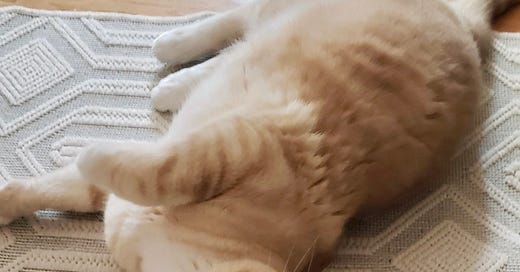




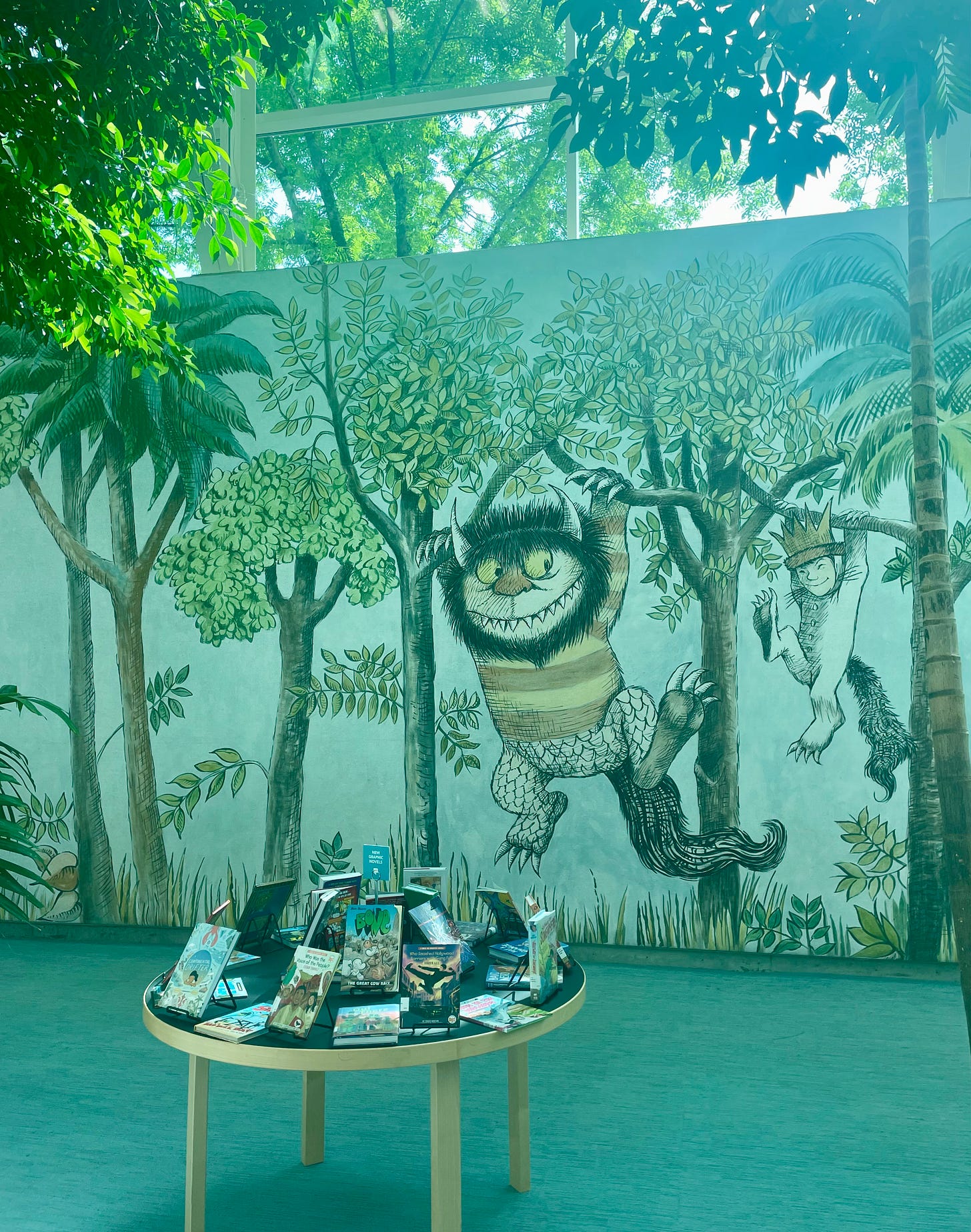
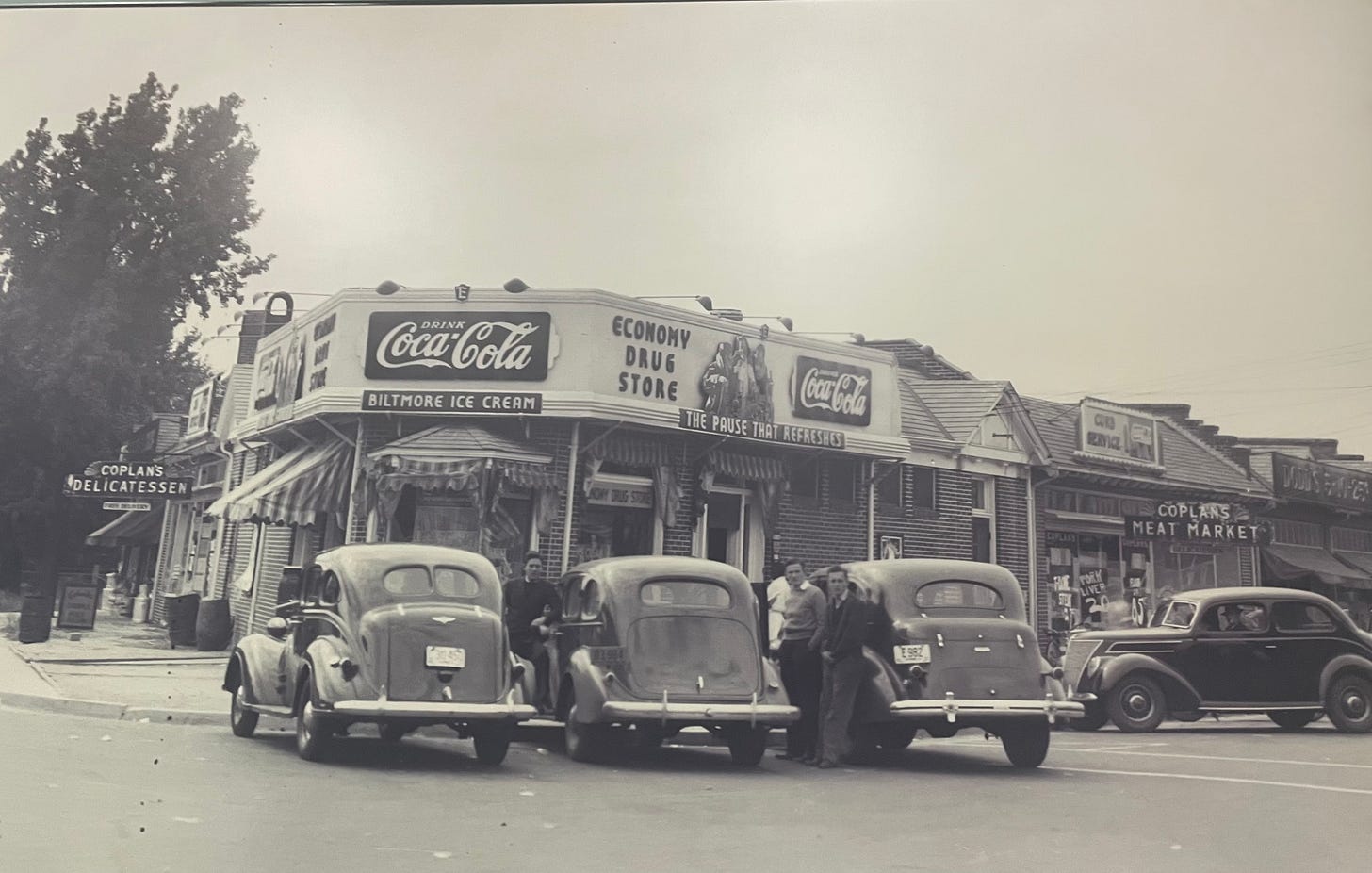


Yes, after moving past the lolling Riley, I got a jolt of a reminder. I do remember that ungracious period in our history. (And why do these days make that period so easy to believe really happened?
Well I did like the photo of the young guy daring to snatch a forbidden drink of water. I liked his shirt, too, but wondered what ever happened to him. I like to think he got away with it.
Congrats on winning a prize for your poetry! You be one versatile gal. I hope Steve didn't eat ALL those happifying vittles by himself.'
Fascinating history and a downer about library closings and book bans. Too much of that recently. And Riley's expression reminded me of my former Dylan.